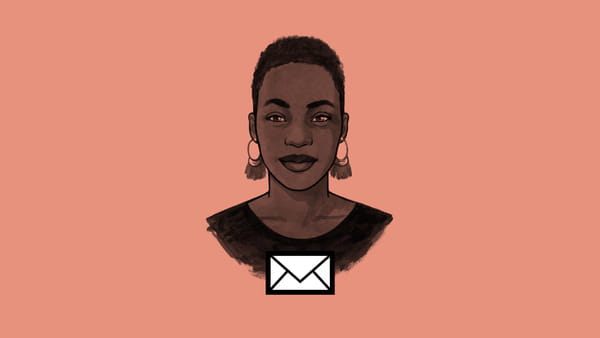Hi,
In case you missed it, it’s Women’s Month. The advocacy, development and media universes, as well as the ‘woke’ corners of the corporate universe, are all awash with pro-woman, pro-gender equality, pro-empowerment messaging.
In case you can’t tell yet, I’m not much of a fan.
Call me jaded, cynical or both, but there’s something about the symbolism of things like ‘Women’s Month’ that now feels a bit hollow to me. When I used to work in communications for women’s rights advocacy organisations, I saw how we would ramp up all our strategies during this period. Interest and engagement would be at their peak. Conversations, panels, meetings, all kinds of activities would be planned. Everyone would say all the right things.
Then April would come, and we’d be mostly back to the status quo.
It was disillusioning, and as you can see, I haven’t quite recovered from the disappointment of seeing people – especially powerful people – mouth all the latest buzzwords while meaning few or none of them.
To be clear, I firmly believe that the motivation behind campaigns like Women’s Month is good and right. I just wish that the resulting ‘woman-centric’ flurry didn’t feel so canned or hypocritical. I would like to see more people embrace the work of advancing women’s rights as eagerly as they champion the symbolism of Women’s Month.
We live in a world that devalues women 365 – or 366 – days a year. There are no breaks; not when there are new cases every day of women being killed by intimate partners or family, dying from pregnancy-related complications, going to prison for defending themselves from abuse, experiencing sexual violence, or slipping deeper into feminised poverty.
We need so much more than symbolic, rhetorical engagement with ‘empowerment’ or ‘equality’. I wish I could just accept the flag-waving and banner-flying that happens this month, but in a time when it seems women’s rights are being rolled back, I’m much more concerned with how we can achieve real and sustained progress.
In my country, a bill to criminalise the rampant sexual harassment of female students in universities by lecturers and professors was reintroduced in the National Assembly following a BBC Africa Eye exposé fronted by journalist Kiki Mordi. Last month, the National President of the Academic Staff Union of Universities (ASUU) condemned the bill, claiming that it would ‘stigmatise’ lecturers.
This sort of thinking is neither shocking nor unusual; it’s just another manifestation of how much work needs to be done to actualise women’s rights.
Women’s Month is a useful entry point into conversations about the inequalities and injustices that some people endure because of their gender. Still, I encourage us all to fully internalise the awareness that this month promotes, and let the knowledge of women’s rights as human rights impact our thinking and behaviour all year round.
For anyone who might be wondering how to be the type of person who acts to protect and promote women’s rights 24 hours a day, 7 days a week, and 365 (or 366!) days a year, here are five quick tips:
- Believe women: Research reveals that up to 70% of women will experience sexualised violence at least once in their lifetime. The possibility of sexual violation looms large in the minds of most women, affecting everyday choices like where to go or what to wear. When you challenge the notion that women who publicly allege sexual violence must be lying, it makes it easier to recognise how misogyny and unconscious biases work to silence and re-victimise survivors of all genders.
- Read and cite women: How many of your ‘quotable quotes’ come from women? Knowledge production is not gendered, but the way that we engage with and disseminate ideas often is. It is far too easy to unconsciously consume knowledge that is mostly produced by men, because this is what the mainstream elevates. Go out of your way to discover the work of writers, thinkers and other creatives who also happen to be women. Then spread the work you enjoy as widely as you can.
- Embrace expansive understandings of ‘woman’: As more people are now realising, thanks to the increased visibility of all kinds of minority groups, ‘woman’ doesn’t only mean ‘white, thin, cisgender, able-bodied, heterosexual, conventionally attractive person who looks like they ought to have a vagina’. ‘Woman’ as a social category is more complex than most of us have been taught. Be more open-minded; learn about concepts like body politics, ableism, misogynoir, intersectionality and other social theories that build on mainstream ideas of gender.
- Let girls be free: The over-policing of girls is depressingly common. Girls are forever being asked to watch or adjust how they sit, what and how much they eat, how they look, what they’re interested in, where they go, what they wear... The list is endless. But girls have as much of a right to exist in the world as anyone else, and they should be allowed to do so on their own terms. If you’re ever in a position of guidance, leadership or authority over a girl or girls, don’t stifle their curiosity or try to ‘tame’ them. Let girls be free.
- Ditch the stereotypes: Women aren’t ‘catty’. Or, at least, they’re no cattier than anyone else. Before explaining away a woman’s behaviour that you don’t understand or approve of by terming it ‘PMS’, ‘bossiness’, ‘nagging’ or even ‘bad driving’, check yourself. The social conditioning might be strong, but I have faith that you’re stronger. Women are human. Stereotypes are dehumanising. When you reject the half-truths of stereotypes, you give yourself a chance to understand humanity a bit better.
Now I’d love to hear your quick tips for embracing the importance of women’s rights, instead of just the symbolism. Let me know by email – olutimehin@thecorrespondent.com – or under this piece!
Till next time,
OluTimehin
 Want to receive my newsletter in your inbox?
Follow my weekly newsletter to receive notes, thoughts, and questions on the topic of Othering and our shared humanity.
Want to receive my newsletter in your inbox?
Follow my weekly newsletter to receive notes, thoughts, and questions on the topic of Othering and our shared humanity.

